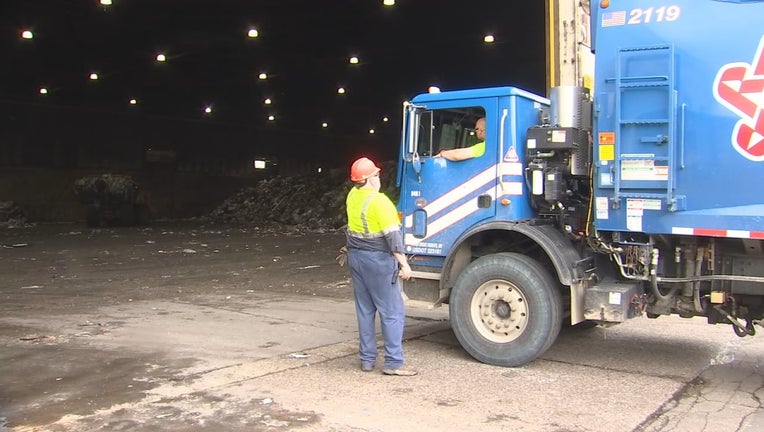Minnesota Pollution Control Agency to decide if 4 metro landfills can expand

ST. PAUL, Minn. (FOX 9) - On June 1, the Minnesota Pollution Control Agency will decide if four metro area landfills will be allowed to expand. To the MPCA, that is a clear sign that the Twin Cities is facing a critical problem with garbage.
"We as a metro region have created more waste," says MPCA Assistant Commissioner Kirk Koudelka. "While we’re doing better, making some improvements in recycling and composting, we’re still creating a lot of waste that has to go someplace."

Minnesota Pollution Control Agency to decide if 4 metro landfills can expand
On June 1, the Minnesota Pollution Control Agency will decide if four metro area landfills will be allowed to expand. To the MPCA, that is a clear sign that the Twin Cities is facing a critical problem with garbage.
Each year, the Twin Cities generates about 3.3 million tons of waste. The state had set a goal of sending only 2 percent of that to landfills by 2020, but now one year past that deadline, we are nowhere even close.
The state also has a goal, written into state law, of recycling 75% of metro area trash by the year 2030. Currently, the number stands at 47%. Part of reaching the recycling goal is to push more curbside compost and organics collection, which the MPCA is hoping more cities and trash collection companies will offer.
"Over 20% of what ends up in the trash can is food waste that can go to a compost facility, or if we can conserve it before it goes there," says Koudelka.
The MPCA is starting work on a new six-year Metro Waste Management Plan. On May 26th, they’ll host two online public comment sessions, hoping to hear how to make recycling easier.
And they point to the Ramsey-Washington Recycling and Energy Center in Newport as a good success story. The facility, owned and operated by those two counties, takes in 450,000 tons of trash a year and only 10% winds up in landfills.
It's a small number, but they’re working to bring it down to next to nothing.
"There will always be a portion of our waste that will probably have to end up being in a landfill," says Nicole Stewart, Washington County’s Senior Environmental Resources Manager. "But the counties are always looking at new technologies to capture as many resources and really that value of the waste. Once it goes to a landfill, it’s wasted resources."
Most of the garbage here is either recycled or incinerated for energy. But they’re now adding new equipment to handle compost recycling, too. The MPCA sees compost and organics collection as a huge part to reducing landfill waste, hoping to get more cities to offer curbside collection. Currently, only 20% of the metro does.

